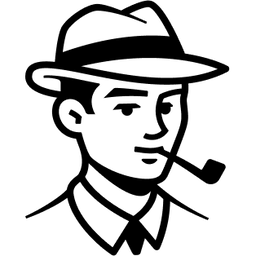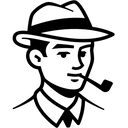Dutch Election: Populist Wilders Suffers Setback
Dutch Election: Populist Wilders Suffers Setback
Update:
Dutch parliament looks to take a centrist turn as a result of Wednesday's snap national election. Exit polling shows the Democrats 66 (or D66) social liberal and progressive political party leading, ahead of the right (or as the MSM likes to say: "far right"). Per the latest:
The centrist liberals under Rob Jetten have taken a shock lead in the Dutch election, according to the main exit poll, two years after his party languished in fifth place in the last vote.
Jetten staged a remarkable campaign in recent weeks, and the Ipsos I&O exit poll suggests his D66 liberals have won 27 seats, two more than anti-Islam populist Geert Wilders who won the last election.
Although the final result is too close to call, Wilders conceded victory and Jetten told supporters "millions of Dutch people have turned a page", choosing positive politics.
Three other parties are close behind, including the conservative liberals, the left-wing Green-Labor party and the Christian Democrats.
Geert Wilders' Party for Freedom (PVV) is projected to win 25 seats. The election is expected to amount to a loss of 12 seats in the House of Representatives for PVV.
"The voter has spoken," Wilders stated shortly after the exit polls. "We had hoped for a different result, but kept our backs straight. We are more combative than ever and still the second and maybe even the biggest party of the Netherlands."
The NY Times notes, "With no party winning an outright majority, the next step is for Dutch lawmakers to form a coalition, which could take months. It is still unclear who will become the next prime minister, though the leader of D66, Rob Jetten, seemed a likely possibility on Wednesday night."
Original:
There is an extremely tight race on between Geert Wilders' Party For Freedom (PVV), which is often dubbed in mainstream media as 'far right', and more 'moderate' parties, including the Green Left Labour Party (GL-PvdA), center-left D66 and centrist Christian Democratic Party (CDA) - as Dutch voters cast their ballots across the Netherlands on Wednesday in a close-run snap election.
Key national issues include reining in migration, chronic shortages of affordable housing, high cost of living, national security questions in relation to the Ukraine war and purchasing US military equipment for Ukraine, as well as forming a stable government amid an increasingly polarized Netherlands political scene. While Wilders' PVV is favored, chances are slim that other parties will work with it to form a coalition, as happened last June. The political winds are blowing to the center, most analysts believe.
Polls have indicated that even a victory at the ballot box for Wilders will not easily translate into forming a government. Wilders emerged as the clear winner in the previous election in November 2023, but recent polls suggest his support has slipped ahead of Wednesday's vote.
Rival parties have increasingly ruled out cooperating with him following the collapse of his own governing alliance last June.
"It's up to the voters today," Wilders said after casting his vote at The Hague City Hall, surrounded by security guards. "It's a close call…four or five different parties. I'm confident."
European media has widely anticipated that the next Dutch government, which could be more influenced by who comes in second in the vote rather than the first, will more likely to come from the center left or center right.
Polls showed over a third of voters to be undecided even up to the eve of the election. "It's one of the most important elections, because people need to have their faith restored," Sarah de Lange, professor of Dutch politics at Leiden University, has described.
According to a new BBC review of what's at stake on Wednesday:
As many as 15 parties are set to win a share of parliament's 150 seats, but opinion polls suggest four will stand out. Apart from Wilders' PVV, there is GreenLeft-Labour under ex-EU top official Frans Timmermans, Rob Jetten's liberal D66 and the centre-right Christian Democrats of Henri Bontenbal.
And The Guardian reviews some key elements of this election as follows:
- The PVV, which finished a shock first in the last election and formed a short-lived, four-party rightwing coalition, has seen its once sizeable lead fade fast. With nearly half the electorate undecided, analysts say the race is too tight to call.
- Final polling averages suggest Wilders’ party could win between 24 and 28 seats in the 150-seat parliament, well down on the 37 it captured in the 2023 elections. Even if it does finish first, all major parties have ruled out going into government with the anti-immigration firebrand.
- Wilders pulled the plug on the outgoing government in June, less than a year after it took office, when the PVV’s coalition partners refused to endorse his radical anti-refugee plans, widely seen as unworkable or illegal.
Clintons Agree to Testify in Epstein Probe
Feb 3, 2026
2 min
India Drops Russian Oil; Trump Slashes Tariffs
Feb 3, 2026
2 min
Dem Flips Deep-Red Texas Senate Seat
Feb 3, 2026
2 min
CBS News Weighs Firing Attia Over Epstein Emails
Feb 3, 2026
1 min
Emails: Epstein Had a Secret Child
Feb 3, 2026
3 min
Emails: Melania Praised Epstein Article to Maxwell
Feb 3, 2026
2 min
Billie Eilish Blasted for "Fuck ICE" Speech
Feb 3, 2026
1 min
TODAY Anchor Savannah Guthrie’s Mom Likely Abducted
Feb 3, 2026
2 min
Judge Refuses to Halt ICE Operation in MN
Feb 1, 2026
2 min
Senate Passes $1.2T Govt Funding Deal
Feb 1, 2026
4 min
US, Israel Deny Role in Deadly Iran Blasts
Feb 1, 2026
1 min
Ghislaine: 29 Epstein Friends Cut Secret Deals
Feb 1, 2026
2 min
Epstein Photo: Andrew on All Fours Over Woman
Feb 1, 2026
2 min
Judge Blocks Trump’s Citizenship Voting Rules
Feb 1, 2026
2 min
Moltbook: The Social Network Where Humans Can’t Post
Feb 1, 2026
3 min
Detransitioner Wins $2M in Historic Malpractice Verdict
Feb 1, 2026
2 min
Feds Arrest Don Lemon Over MN Church Protest
Jan 30, 2026
2 min
DOJ Releases 3M Epstein File Pages
Jan 30, 2026
5 min
Trump Taps Kevin Warsh for Fed Chair
Jan 30, 2026
6 min
Partial Shutdown Likely Tonight Despite Senate Deal
Jan 30, 2026
2 min

